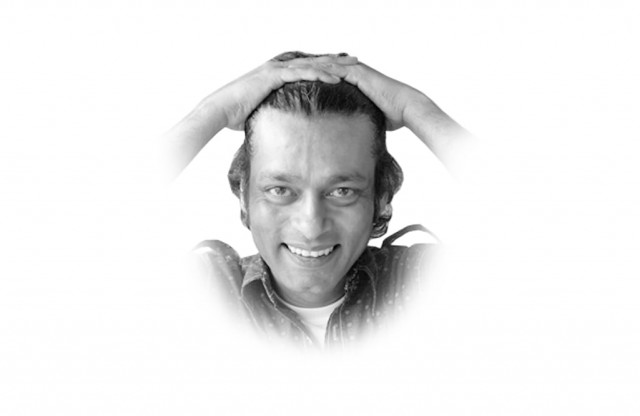Ideas and executions
Syed Ali Shah Geelani doesn’t want India and Pakistan to talk. Nothing new about that.

Ideas and executions
Geelani’s latest comments come, however, at a time during a biting winter, when nothing was supposed to happen in Kashmir (both terrorists and human rights violators prefer to settle around their respective fires and exchange stories of their exploits in these months). But something is happening. And it is not good for Mr Geelani. Which probably means it isn’t good for moderate Kashmiris either. Mr Geelani was once denied a US visa because he “failed to renounce violence.”
About two weeks ago, one of Geelani’s opponents, Abdul Gani Bhat, suggested that their late colleague, Abdul Gani Lone, had paid with his life for the progressive views he held. Lone was killed “by our own people”, said Bhat, taking the blame away from where it usually rests — state actors of one persuasion or another.
Two days ago, Sajjad Lone, the late leader’s son, said his father was the victim of orders by “white collar men” and that he had a fairly good idea who these men were. Lone was assassinated in Srinagar in May 2002. He was at a function organised to pay tribute to Mirwaiz Maulvi Farooq, the spiritual head of Kashimiri Muslims, who was killed by the Hizbul Mujahideen in 1990.
Lone’s sons now say they carry some guilt at not being brave enough to say that their father’s assassination was an inside job. So the question is: Why are they doing it now? One reason could be the renewed Indian push toward peace in Jammu and Kashmir. A three-member committee of interlocutors has been appointed to speak to all parties concerned, as they say — or to whoever agrees to speak with them. This committee has submitted its first report to the government and it is suitably high-sounding, if a little obvious.
The report says that the right to protest is a fundamental right. That security forces must deal with protesters in a humane way. And that nothing can move forward unless “people are given due respect”.
This is all very well, but it isn’t enough provocation for moderates to allege there are white-collar murderers within the separatist fold. A peace push (or shove) is an almost quarterly event, interlocutors and other ornaments included. These are part of a continuous process usually guided by the Indian bureaucracy — they are the ones who have earned the right to a lifetime of power by passing one exam in their youth. They look after their own interests, making short-term adjustments to give the appearance of keeping the interests of their temporary masters in mind.
The answer to the ‘why now?’ question is that it cannot be found in anything immediate. This, too, is part of a process. A process of realisation by progressive groups in Jammu and Kashmir (the greatest of them being ordinary citizens), that the same inside out violence that has visited Pakistan in recent times will be upon them as well.
Pakistanis are killing Pakistanis weekly in a game of ‘us and them’ in which the ‘them’ is unerringly the victim, and unfailingly seen as a moderate. This is fairly obvious too: Moderates don’t kill.
Hardline (imported and locally manufactured) views on the founding of an Islamic state of Kashmir, the imposition of Sharia and other medieval meditations, don’t stop at being ideas for people like Geelani. With the welcoming of foreign mercenaries, execution is also their thing.
This is what people like Bhat and the Lone brothers fear. There will be more killings, they say, if the white collar assassins aren’t stopped.
When Syed Geelani went to the Lones to offer his condolences after their father’s killing, he was refused entry. Sajjad Lone then came out with a statement (quickly retracted) that the ISI was behind the killing.
He probably knew at the time he was saying it that this couldn’t be the whole truth. That lay much closer to home.
This realisation by the people is what worries hardliners. And if hardliners are worried, moderates beware.
Published in The Express Tribune, January 13th, 2011.














COMMENTS
Comments are moderated and generally will be posted if they are on-topic and not abusive.
For more information, please see our Comments FAQ